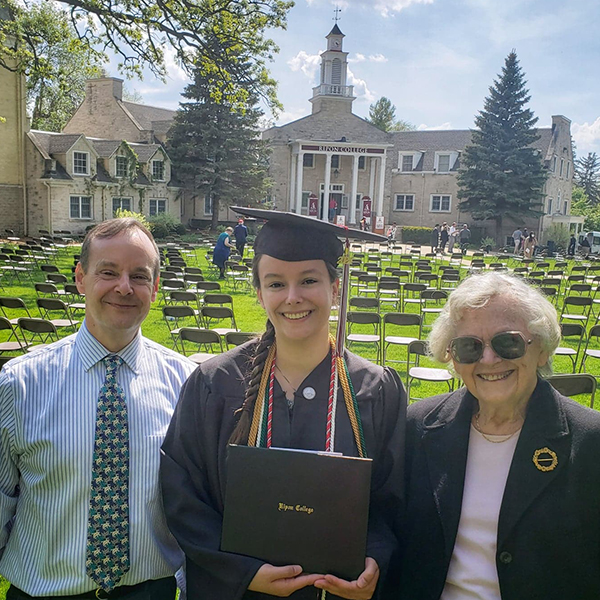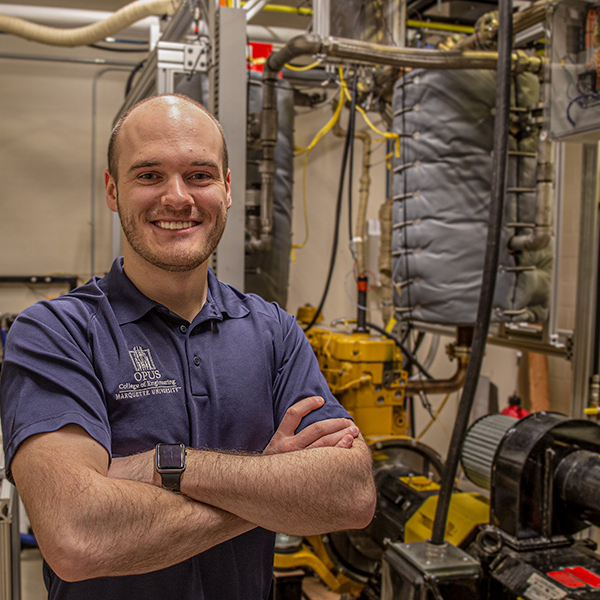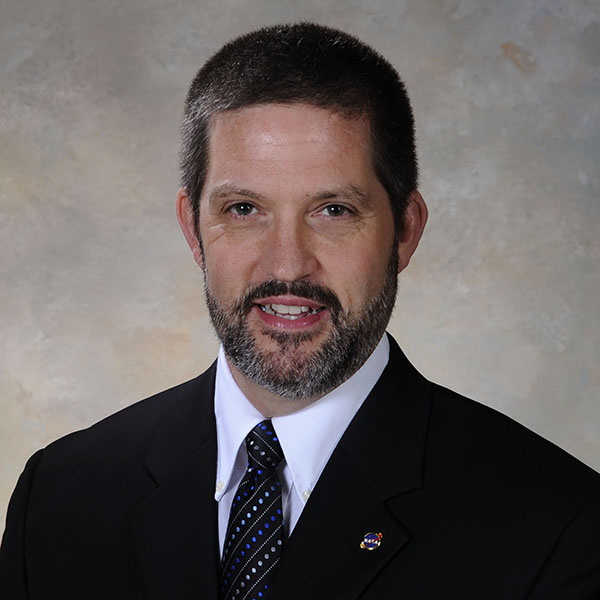Ripon helping members of the public experience upcoming eclipse on April 8
A public Eclipse Viewing Event will be held April 8 by The Society of Physics Students and the Ripon College departments of physics and education […]
“For me, being a Legacy student is something I’m proud of, although not the main reason I chose Ripon. I came to Ripon because I had the chance to meet some of the professors, and between the community and the professors’ willingness to challenge us as students, I was excited to come.” Julia is continuing her education with the goal to achieve a doctorate in materials science and engineering.

The Ripon College Department of Physics engages students in the understanding of the physical world and enhances students’ awareness of the critical role of physics in modern society. The department equips students to identify and effectively implement the scientific method, critically analyze scientific arguments, identify and solve analytic problems, synthesize complex information and communicate effectively both orally and in writing through the study of physical phenomena.
At a Glance
Interact with, measure and explain systems in the universe from subatomic particles to galactic clusters by working together in the classroom and the lab to answer questions posed by nature. Learn to apply the principles of physics to concerns of society, coming to an appreciation of the beauty and subtlety of the universe.
Physics majors also have the opportunity to participate in the 3-2 Dual-Degree program, an accelerated degree option for engineering.
Expect to Experience
Leave Empowered To
Students who complete the physics program graduate with the skills necessary to:
A public Eclipse Viewing Event will be held April 8 by The Society of Physics Students and the Ripon College departments of physics and education […]
A National Science Foundation grant worth more than $259,000 over four years has been awarded for an interdisciplinary research study led by Associate Professor of […]
Ripon College is launching its first engineering program to coincide with the opening of the new Franzen Science Center in 2024. This curricular addition comes […]

Associate Professor of Physics, Harrison E. Farnsworth 1918 Endowed Chair in Physics

Associate Professor of Physics
Ripon College faculty and professional staff are dedicated to helping you reach your goals, whatever they may be and however often they may change along the way. It’s part of our value statement to you.
As a student at Ripon, you will be assigned a faculty adviser based on your area(s) of interest. You will meet with your faculty adviser throughout your time as a student to discuss your current aspirations, plan your course schedule and plot a future trajectory. We also work collaboratively with Ripon College Career and Professional Development to help match your interests and skills to concrete goals and construct a plan for professional success offering personalized career counseling, off-campus learning opportunities and an online job board with potential to connect with local, national and international employers.
Advising at Ripon Featured Course: PHY 441 Experimental Laser Optics
Featured Course: PHY 441 Experimental Laser OpticsA project-oriented laboratory course in laser optics. Students will complete a variety of experiments chosen from areas such as geometrical optics, diffraction, holography, interferometry, fiber optics, ultrafast lasers, non-linear optics and quantum optics.
| Requirements for a Major in Physics | |
|---|---|
| Core Courses | PHY 131 General Physics I: Mechanics, 172 General Physics II: Electricity, Magnetism and Waves , 251 General Physics III: Modern Physics, Optics and Thermodynamics, 330 Advanced Mechanics, 340 Electricity and Magnetism, two semester of physics seminar (PHY 501 Senior Seminar, 502 Senior Seminar) |
| Elective Courses | plus eight additional credits in courses numbered above 300 (excluding 401), with four of those credits from an experimental or laboratory course |
| Additional Criteria | In senior seminar, students will complete a substantial research project that culminates in a written thesis as well as a seminar presentation. Students majoring in Physics may not major in Physical Science. |
| Requirements for Students seeking to participate in a 3-2 Dual Degree program in engineering with a major in physics | |
|---|---|
| Core Courses | Students seeking to participate in a 3-2 Dual Degree program in engineering with a major in physics must fulfill the requirements for the major and additionally, must complete MTH 206 Multiple Variable Calculus, MTH 343 Differential Equations, CSC 101 Introduction to Programming and CHM 111 Organic Chemistry I (or CHM 112 Structure and Reactivity) to be eligible for the program. The requirement of two semesters of physics seminar (PHY 501 Senior Seminar, 502 Senior Seminar) is waived for students who enroll in a 3-2 program for their fourth year. |
| Requirements for a Minor in Physics | |
|---|---|
| Total Credits | 22 credits in Physics |
| Core Courses | PHY 131 General Physics I: Mechanics, 172 General Physics II: Electricity, Magnetism and Waves, and 251 General Physics II: Electricity, Magnetism and Waves and Thermodynamics |
| Elective Courses | Eight additional credits in Physics courses numbered above 300 are required, with at least four credits coming from a non-experimental/non-laboratory course |
| Additional Criteria | Cross listed courses cannot count toward the Physics minor. Students majoring in Chemistry, which requires PHY 131 General Physics I: Mechanics and 172 General Physics II: Electricity, Magnetism and Wave, can still count those credits toward the Physics minor. |
| Requirements for Students interested in teaching physics | |
|---|---|
| Core Courses | Students interested in teaching physics need to complete the secondary education major and the science education licensure requirements which include: a major or minor in biology, chemistry, physics, or environmental studies and the following courses: BIO 122 Ecology, Evolution, and Diversity, 123 Molecules, Cells, and Genes, 211 Human Anatomy and Physiology I, CHM 111 Organic Chemistry I , 112 Structure and Reactivity, ENV 120, PHY 131 General Physics I Mechanics,152 Introductory Physics II: Electricity, Magnetism and Waves, and EDU 337. |
Our graduates pursue everything from industrial research and teaching to technical writing and aeronautical engineering. Paths of graduates have included graduate school programs in math, engineering, physics and education at schools such as the University of Notre Dame, California University-Berkeley and the University of Wisconsin-Madison.

Powered by Lightcast - 2022
Ripon College is here to provide unique experiences that will enhance your studies.

Research opportunities and internships, in collaboration with Ripon College professors, in areas such as soft condensed matter, biophysics, electron-photon interactions and much more. Paid summer internships are available through our Summer Opportunities for Advanced Research (SOAR) Program, and often this collaborative work is published.
Explore the Othon Lab and Barwick Lab for current research information.

Independent study in physics offers students the opportunity to receive college credit for work on individual projects. These projects may be research collaborations with faculty or problems of particular interest to the student. Outside support is available for some areas of study. For example, the NASA Wisconsin Space Grant Consortium Scholarship Program provides support for qualified students taking part in aerospace studies.

The Oak Ridge Science Semester enables students to join ongoing investigations at the Oak Ridge National Laboratory in Tennessee in research areas as diverse as astrophysics, cell biology, DNA sequencing, genetic mutagenesis, parallel computing, robotics, toxicology and more.

Jared was a mathematics and physics double major at Ripon. "Dr. Chrstina Othon, Dr. Brett Barwick, Dr. Andrea Young and Dr. Mackenzie Lamb were all very supportive in my desire to move on to the next level. They really did lay the foundation for me to succeed."

In addition to giving him a "hunger for taking on challenges," Larry says that his Ripon College education has developed his abilities to comprehend, think and communicate. "This has served me extremely well throughout my career from when I was designing hardware and acquiring unique data … to the more managerial and leadership roles which I currently perform."



Breaking ground in spring of 2023, the Franzen Science Center is a complete renovation of Farr Hall including 19,000 square feet of new construction featuring new laboratory, classroom and collaboration spaces throughout. The space, originally built in 1961, is designed to meet the STEM learning needs of science students today and with the flexibility to adapt to needs in the future. Click here to learn more about Ripon's ongoing investment in our campus.



Home to the science department, Farr Hall contains classrooms, labs, faculty offices, Bear Auditorium and a greenhouse. Labs are dedicated to topics such as astronomy, biophysics, bio materials, electrostatics, laser optics, magnetostatics, quantum optics, thermodynamics and more.